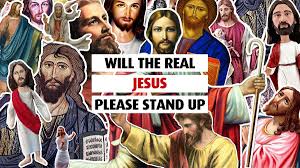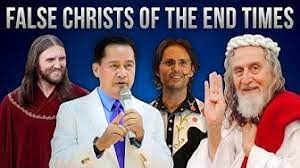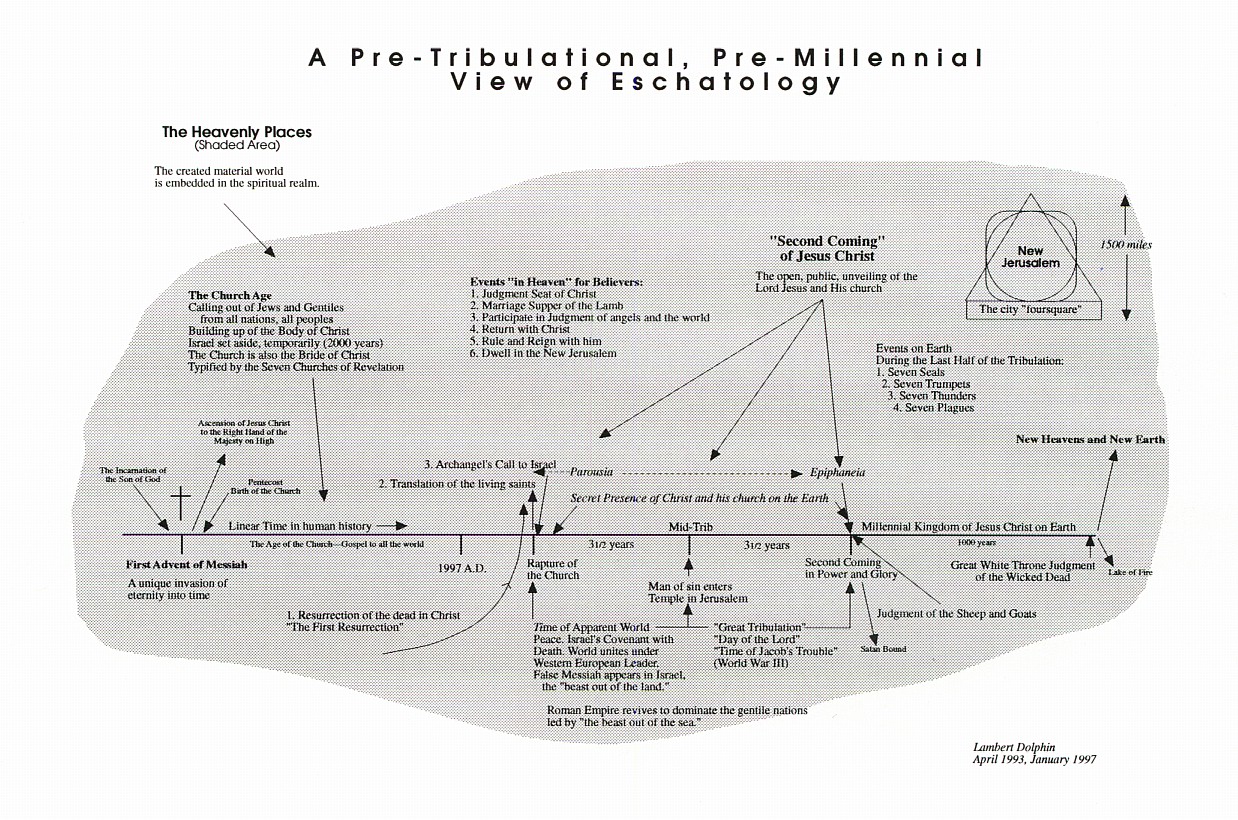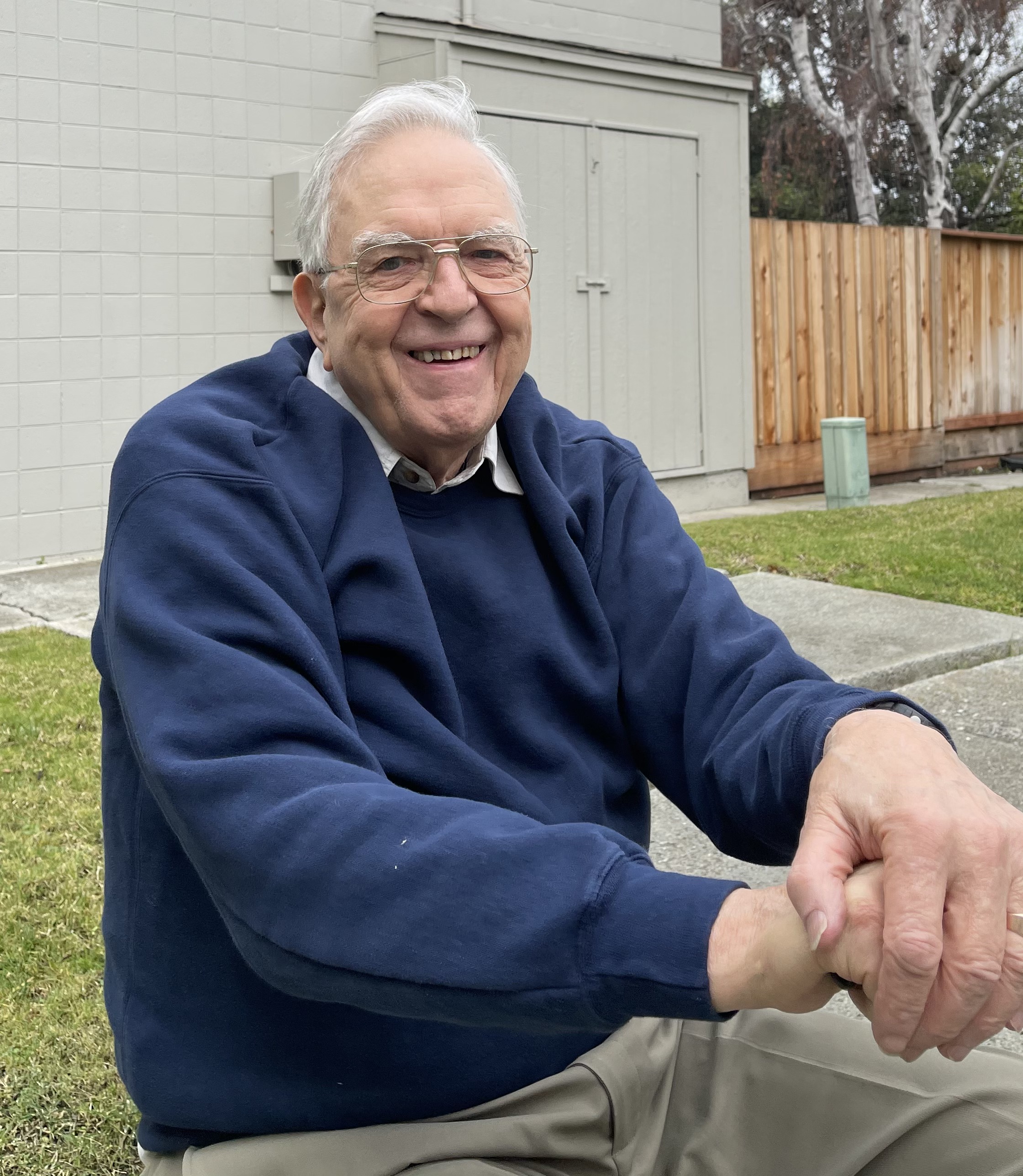In a previous version of this article I reported on a talk in June 2019 by Tim Keller at the Howard Hendricks Center of Dallas Theological Seminary. Keller spoke of a disconnect in Christian groups between older generations and Millennials. He had seen that first hand.
Jesus loves the wealthy and the entitled but He usually hangs out preferentially with widows and orphans.
In the new paradigm, each person is his or her own god, with limited accountability to anyone. Horizontally the prevailing value system is about surviving in company of like-minded peers. Since we all can’t be God, we must respect the godhood of our traveling companions--there are no absolutes except for death.
The saving life of Jesus is the best possible good news for anyone, especially for the young among us who fear death profoundly.
It’s too easy of us to believe that we are the center of things. Not so! Our destiny as followers of Jesus is a great marriage feast where followers of Jesus will see Him as He is now shining in the spender of redeemed manhood.
On this last Sunday of 1970 not only are we drawing to the close of the old year, but we have also reached the end of the present series of studies in the book of Acts. With Chapter 21 we will begin a new series, in which we will see Paul in a role different from any we have seen him perform before in Acts, i.e., as a prisoner of the Lord. But today we are completing "The Pattern Setters" series in which the great apostle has been setting an example for us in the ministry of the Word of God throughout the reaches of the Roman empire.
In our last study together we saw him departing from Ephesus at the conclusion of the great riot created there by the reaction of the silversmiths to the power of the gospel. The good news about Jesus had changed the whole cultural pattern of the city and had destroyed the market for the silversmiths' souvenirs of the temple of Artemis. Luke picks up the account of Paul's ministry as he goes from Ephesus through Macedonia and into Greece:
When he had gone through these parts and had given them much encouragement, he came to Greece. There he spent three months... (Acts 20:2-3a RSV)
Paul moved through cities he had already visited, cities where he had founded churches -- Philippi, Thessalonica, Berea, etc. He probably spoke to the believers in Athens and finally came to Corinth where he stayed for the three months Dr. Luke mentions. Amazingly, Luke records just this briefly a ministry which extended for a period of at least a year.
There are many incidents in the life of Paul which we would like to know about. Many things happened to him which are not recorded. For example, he visited the region which today we call Albania and Yugoslavia. In these ancient times it was called Illyricum. Paul refers to it briefly in the book of Romans but we know nothing of what happened there. One day it will be exciting to hear from his own lips about these forgotten parts of his ministry.
He went into these areas in order to encourage the believers. The apostle was no fly-by-night evangelist who would merely come in, and preach, and then move on, leaving the people to struggle on alone. He came to teach them the truth, because the truth would set them free. So he traveled about, and, as Luke says, "gave them much encouragement." Also, you remember, he collected the contributions which the saints in these Gentile churches had made toward relief of the famished and poverty-stricken believers in Jerusalem. Several men were appointed by each church to travel with him and take these gifts to Jerusalem. Luke tells us who some of them were in the next section:
There he spent three months, and when a plot was made against him by the Jews as he was about to set sail for Syria, he determined to return through Macedonia. Sopater of Beroea, the son of Pyrrhus, accompanied him; and of the Thessalonians, Aristarchus and Secundus; and Gaius of Derbe, and Timothy; and the Asians, Tychicus and Trophimus. These went on and were waiting for us at Troas, but we sailed away from Philippi after the days of Unleavened Bread, and in five days we came to them at Troas, where we stayed for seven days. (Acts 20:3-6 RSV)
Paul intended to sail directly from Corinth to Jerusalem, for he wanted to be there for the feast of the Passover. But he heard rumors of a plot against him, apparently involving the ship on which he was to sail. Very likely the Jews plotted that somewhere in the course of the voyage they would simply push him overboard and thus get rid of a man who, in their judgment, was very troublesome. But God was always alert to keep the apostle informed of these plots against him. So Paul changed his mind and went back through Macedonia, through Thessalonica and Philippi. There Luke joined them -- notice the change from "them" to "us" in Verse 5. Then they sailed on together to Troas.
With them went these young men whose names are mentioned. Some of them are slaves. The man whose name was Secundus was obviously a slave. Secundus means "the second." Slaves did not bother to name their children; they just numbered them -- the first, the second, the third, etc. It may be that "number three," who wrote the letter to the Romans as Paul's secretary, was this man's brother. His name was Tertius -- number three. There also were other men of various classes.
Paul insisted that these men go with him to Jerusalem in order that it would be clear that the funds were handled properly and that no one was misusing them in any way. But also, "coincidentally," these were sharp, alert young men, especially picked to travel with the apostle and to learn from him. So Paul had a traveling seminary and, as they went along by ship and by road, he taught these young men from the Scriptures. They were, in effect, interns. In the next paragraph we have an intimate glimpse of a wonderful event which occurred in Troas:
On the first day of the week, when we were gathered together to break bread, Paul talked with them, intending to depart on the morrow; and he prolonged his speech until midnight. There were many lights in the upper chamber where we were gathered. And a young man named Eutychus was sitting in the window. He sank into a deep sleep as Paul talked still longer; and being overcome by sleep, he fell down from the third story and was taken up dead. But Paul went down and bent over him, and embracing him said, "Do not be alarmed, for his life is in him." (Acts 20:7-10 RSV)
There are several very interesting aspects of this story. This is the first mention we have of the worship of the believers on the first day of the week, i.e., Sunday. This early in the Christian era they had shifted from Saturday to gathering on the first day of the week, the day of our Lord's resurrection. They evidently had met here for a communion service, and the apostle seized the occasion to teach them from the Scriptures. He loved to teach the Word because he knew it would deliver these people. He had very little time to spend in Troas but he did spend a week to teach them the delivering truth. In his last evening there, before they gathered at the Lord's table, he took time to teach them further from the Scriptures. He went on at considerable length, prolonging his speech until midnight.
This has always been an encouraging passage to any pastor. It reveals that even the Apostle Paul had people go to sleep on him. Someone has said that the art of preaching is speaking in other people's sleep. This was certainly the case here. At any rate, Eutychus fought a losing battle against falling asleep. Luke, with his physician's eye, is quick to make it as easy as possible on him. He tells us that there were many lamps in the upper chamber and each, of course, was burning up the oxygen. So, with the loss of oxygen in the atmosphere, and the late hour, and, perhaps, a long week's work behind him, and given Paul's long message, this young man was unable to hold out. He was seated in the window and fell into a deep sleep. Actually the Greek word is the one from which we derive "hypnosis." He fell into a deep state of hypnosis as Paul droned on, and so he fell from the third floor and was taken up dead.
Some question whether he actually died. But the issue is settled by a physician's testimony. It is Dr. Luke who says that they took him up dead. So when Paul, going down and falling over him and embracing him, said, "Do not be alarmed, for his life is in him," he did not mean he was still alive. He meant that his life had returned to him. Thus he was really used of God in the great miracle of raising this young lad from the dead.
Peter, of course, was involved in a similar miracle in the case of Dorcas. It was all the more remarkable in that she had been dead for several hours by the time he prayed for her. The ministries of these mighty apostles of God were confirmed by these unusual miracles, including this one of raising a young man from the dead. We have another touching note at the close of the paragraph:
And when Paul had gone up and had broken bread and eaten, he conversed with them a long while, until daybreak, and so departed. And they took the lad away alive, and were not a little comforted. (Acts 20:11-12 RSV)
Evidently the communion service had been interrupted by this young man's "fall from grace," and, when they had restored him, they went back up and finished the Lord's supper. Then they spent a wonderful time together enjoying body life -- the life of the body of believers in Christ -- conversing with one another, fellowshipping in the Lord, sharing each others' experiences. It is interesting to me to see in the book of Acts that we have so much recorded of the ministry of the body -- of other Christians ministering to the apostle as well as he ministering to them. So wonderful was this time that Paul could not tear himself away, even though he had a long walk ahead of him on the morrow. He stayed with them in fellowship all night, rejoicing at the restoring grace of God who had brought this young man alive again.
Now Luke continues the story:
But going ahead to the ship, we set sail for Assos, intending to take Paul aboard there; for so he had arranged, intending himself to go by land. (Acts 20:13 RSV)
We are not told here why Paul chose this route. He sent them around a point that jutted into the sea, a voyage of about forty miles, while he cut across the neck of the peninsula, a hike of about twenty-five miles. He walked alone, very likely because he wanted to have time for meditation and prayer. He could walk and think and pray alone together with the Lord. This was much the habit of the Lord Jesus himself, who used to draw aside for times of meditation. Luke goes on to tell us about the rest of the journey:
And when he met us at Assos, we took him on board and came to Mitylene. And sailing from there we came the following day opposite Chios; the next day we touched at Samos; and the day after that we came to Miletus. For Paul had decided to sail past Ephesus, so that he might not have to spend time in Asia; for he was hastening to be at Jerusalem, if possible, on the day of Pentecost.
And from Miletus he sent to Ephesus and called to him the elders of the church. (Acts 20:14-17 RSV)
It is evident that the Apostle was trying to maintain a schedule. He had planned to be at Jerusalem for the Passover, but he had missed that, and so now he was trying to make it for the day of Pentecost, that day on which the Holy Spirit had first come to indwell the Christians, many years before. He wanted to be there not only to be with the believers but with the Jews as well, to help them in their celebration of the feast day of Pentecost. He had never forgotten his Jewish ancestry and his love for the people of Israel, and he longed to reach them. And so, in order not to waste time, he sent to Ephesus and asked the elders to join him at the port city of Miletus, about fifteen miles from Ephesus. They came, and Paul met them with a great message about their ministry which occupies the rest of this chapter.
Some people are afraid, as Christians, to do any planning. They realize that God is in charge of our lives and they want to be available to do his will, and so they even get to the point where they do not do any planning at all. But you notice here that the apostle does plan ahead. Yet, with it all, he is ready for any change that God might make in the program. You always see that in these early Christians. They understood that God left choices up to them. They were to think and dream, to plan and program, but, as James tells us, they were always to remember that God has the right to interrupt and to change those plans.
This is where so many of us get frustrated. At the beginning of a new year this is good to think about. It is right to plan, but it is also right always to remember that God can change that plan, and that his plan is the important one. We are not to be frustrated or to fear that we are being imposed upon, or mistreated, because things do not go as we planned. The apostle never seemed to object when God changed the plan.
Now we come to Paul's great charge to the Ephesian elders. In it, the apostle is describing and defending his own ministry. It is a beautiful passage from which we get perhaps the most intimate glimpse anywhere in the Scriptures of the heart of this great apostle, of the character of his labors, and of his concern for those with whom he ministers. We will examine it in sections, dividing it according to subject matter.
The elders were what we would call the pastors of the churches there. In these ancient cities they did not meet together as we do on a Sunday morning. There was no room suitable for them to do so. There were probably as many Christians in Ephesus as there are here, and perhaps many more -- perhaps even thousands. But they could not get together in one place, so they met in homes. In a letter to Corinth, Paul speaks of the church in Ephesus which met at the house of Aquila and Priscilla, and there were many others. The teachers of these various house-churches were the elders, those responsible for guiding and directing and teaching and feeding the flock. These are the men whom Paul has summoned to meet him at Miletus. He begins with a defense of his own ministry:
And when they came to him, he said to them:"You yourselves know how I lived among you all the time from the first day that I set foot in Asia, serving the Lord with all humility and with tears and with trials which befell me through the plots of the Jews..." (Acts 20:18-19 RSV)
That gives us some intimation of why he speaks the way he does. Some people read Paul's message and feel that he is being very conceited about his own ministry, that he is speaking at length of how he suffered but was faithful, and of how he preached the word with power. They say he is very much aware of his own success. But if you understand that by this time the apostle is under attack and that his ministry is being threatened, then you will know why he addresses a defense of his ministry to these people.
You can see how he is being attacked. He says that he preached with humility and with tears and went through trials which befell him through the plots of the Jews. This implies that his enemies were suggesting that he was proud, the opposite of humble, and that he was insincere, superficial, and a troublemaker, stirring up dissension everywhere he went. But Paul says, "No, I served the Lord with humility and with tears. This ministry meant everything to me. I wasn't insincere. And the trouble was caused by the Jews, not by me." In the next section we have the manner of his ministry -- a wonderful glimpse of how he worked:
"...how I did not shrink from declaring to you anything that was profitable, and teaching you in public and from house to house, testifying both to Jews and to Greeks of repentance to God and of faith in our Lord Jesus Christ." (Acts 20:20-21 RSV)
This is what he did whenever he came into these cities: First, he always sought to set forth the whole counsel of God. He tried to teach them the whole truth. He did not want them to be short-changed in any way. Sometimes he stayed up long hours in order to cover all that God has said to man. This, of course, was because he knew and understood that it is the knowledge of the Word that sets you free.
I wish I could make that clear to people today, to people who are struggling with problems and internal tensions and pressures, and with boredom, frustration, and a sense of restlessness -- all the negative qualities of life. God has never intended for you to live like that. That is why he has given you the Word. It is the word of truth that sets you free. When you learn it and understand it and operate on it -- it will always set you free. One of the exciting things about this last year or so around here is to see so many people who have simply been transformed, caught up, changed by the truth they have learned, and have been set free from habits and attitudes that have hurt them and ruined them for years. That is why Paul emphasized this ministry so strongly. Notice the commitment to it of his own heart. He was faithful in its delivery not only in public but also from house to house, testifying of it everywhere. Also, see how practical it was. It always could be reduced to two concepts: Repentance toward God, and faith toward our Lord Jesus Christ. There is the Christian message, all summarized for you very neatly in two words: repent and believe.
Repentance is looking at the way you have been living -- at what you have been drawing upon, at your dependence upon the old life -- and changing your mind. That is what repentance means. To repent means to stop thinking and acting and living the way you have been. Instead, step out in faith. Trust the living Lord who is in you to operate through you, and venture out, move out!
The Christian life is intended to be exciting, compelling, always interesting, always different, always lived on the verge of adventure and danger. That is why it must be characterized by faith. So, you see, there are the two basic steps, and you must take them over and over again. The way you begin the Christian life is to repent and believe. And that also constitutes your walk through the Christian life. A walk is more than a single step. When faced with a situation, you should take the first step and repent, think through the old way of life and say to yourself, "I've been going at this the wrong way." But that is not yet a walk. You must take the next step and believe, have faith, trust in the work of God in you. Then, on the next occasion that comes, you go through the same procedure over again -- you repent, and then believe -- repent and believe -- repent and believe -- and you are walking! That is what the Christian life is all about. In every circumstance, every situation, this is the two-fold way by which the Christian lives in the power of a living God: repent and believe. Now the apostle goes on to give another characteristic of his ministry among them:
"And now, behold, I am going to Jerusalem, bound in the Spirit, not knowing what shall befall me there; except that the Holy Spirit testifies to me in every city that imprisonment and afflictions await me. But I do not account my life of any value nor as precious to myself, if only I may accomplish my course and the ministry which I received from the Lord Jesus, to testify to the gospel of the grace of God. And now, behold, I know that all you among whom I have gone about preaching the kingdom will see my face no more. Therefore I testify to you this day that I am innocent of the blood of all of you, for I did not shrink from declaring to you the whole counsel of God." (Acts 20:22-27 RSV)
What a magnificent statement! Note how costly his ministry is. He knows that he is facing danger, trial, hardship, affliction. Everywhere he had gone the Holy Spirit had witnessed to him, through circumstances and through other Christians, that he was heading for trouble, and he knew it. But note also the commitment of his heart. He says that it does not matter.
Karl Marx wrote that communists are dead men on furlough, i.e., they treat themselves as though they are as good as dead. They have nothing to lose so they are ready for anything. That characterizes even better what a Christian really is. He is really a dead man on furlough. He wants nothing for himself, but wants only to have God exalted, Christ manifested. We have it stated so clearly here in these words which are carved across the front of our auditorium: "You are not your own; you are bought with a price." Paul says, "I do not count my life of any value nor as precious to myself -- I am not my own, but I am bought with a price. And that purchase means that I am available to Another to work through me. My aim, my goal, my joy, my desire in life is not that I should have anything for myself, but for my Lord." What a wonderful statement of just how available he was as an instrument of God's working.
Then he makes very clear that he is aware that he has completed his ministry among them: "I testify to you that I am innocent of the blood of all of you, for I have declared to you the whole counsel of God. I have not kept anything back. I have given you the truth. You have listened to it, you have heard it, you know what God has to say. You know the provision for his working, you know the power available to you, you know how to live in a way that will please God and will fulfill your humanity. Now it is up to you, the decision is yours. Now, move out upon the truth you know, because there is nothing further that I can do."
In the final section he goes briefly into the responsibilities of these elders to the flock at Ephesus. There are three considerations the apostle wants to lay before them to govern them in their ministry. The first is to feed the flock:
"Take heed to yourselves and to all the flock, in which the Holy Spirit has made you guardians [or overseers, pastors], to feed the church of the Lord which he obtained with his own blood." (Acts 20:28 RSV)
The primary responsibility of a pastor is to teach the Scriptures, to feed the flock. If he is not doing that, he is failing in his job, miserably. As we have said all along, it is the truth that changes people. If the Word, the Scriptures, are not being taught then people are not being changed. They are struggling on in their own futile ways and nothing is being accomplished. So the primary job of pastors is to set the whole counsel of God before the people.
They are to begin with themselves, says the apostle, i.e., they are to obey the truth which they themselves learn. This is where their authority comes from. It is only as they are obedient to the truth which they teach that they have any right to say anything to anyone else. Even the Lord Jesus operated on that basis. He said to his disciples on one occasion, "If I do not the works of my Father, then don't believe me..." (John 10:37). That is, if what I am doing is not in exact accord with what I am saying, then don't believe me!"
Would you dare say that to your children? Or to your Sunday school class? Or to others who observe you as a Christian? "If what I am doing is not in line with what I teach, then don't believe me. I have no authority over you; I have no power over you." But if your actions are in accord with your teaching then power is inherent in that obedience.
So these elders are to begin with themselves, and to teach the Word. Their responsibility is to the Holy Spirit, not to the denomination, nor to the congregation. It is the Spirit who has set them in that office and has equipped them with gifts. He who reads the heart is judging their lives, so it does not make any difference what anybody else thinks. They are responsible to follow the Holy Spirit in what he has given them to do.
Notice how he underscores the fact that theirs is a very precious ministry. It is to feed the church of the Lord. Nothing is more precious to God in all the world than the people of Christ, the body of Christ. The most valuable thing on earth, in God's sight, is his church. He gave himself for it, he loves it earnestly, "he obtained it with his own blood." Therefore it has highest priority in his schedule and emphasis. What concerns the church is the most important thing in the world today. I wish we could catch that picture as the apostle understood it. The second thing he exhorts them to do is to watch for perils:
"I know that after my departure fierce wolves will come in among you, not sparing the flock; and from among your own selves will arise men speaking perverse things, to draw away the disciples after them." (Acts 20:29-30 RSV)
There will be two sources of danger, he says. The first is that people like wolves will come in among them. Jesus said that too. Wolves in sheep's clothing, unregenerate men and women who, talking and acting like Christians and perhaps even thinking they are Christians, but who are not born again, will come into the church. They will be religious but will deny the power of true faith, and they will disturb and sever and ruin the church of God. These words have been fulfilled throughout the centuries, many times over.
But also from within themselves, from among the elders, the leaders, will arise men who will teach distorted doctrines. The danger, again, will be that they will divide people, separate them, form little cliques which gather around particular leaders. Instead of uniting people in the fellowship of the body they will separate them out into special little groups which follow one man's view and turn away from others. Through the centuries these are the things which have disturbed the church of God.
The third consideration he lays before them is to do all this in the spirit which he himself has exemplified:
"Therefore be alert, remembering that for three years I did not cease night or day to admonish everyone with tears. And now I commend you to God and to the word of his grace, which is able to build you up and to give you the inheritance among all those who are sanctified. I coveted no one's silver or gold or apparel. You yourselves know that these hands ministered to my necessities, and to those who were with me. In all things I have shown you that by so toiling one must help the weak, remembering the words of the Lord Jesus, how he said, 'It is more blessed to give than to receive.'" (Acts 20:31-35 RSV)
The apostle himself has been their example. They are to perform this ministry in four ways: The first is by admonishing with tears, i.e., by "speaking the truth in love" (Ephesians 4:15), as he writes later to the Ephesians. I heard the other day of a certain church which had dismissed their pastor and gotten a new one. Someone asked why they had gotten rid of the old one. A spokesman said, "Because he kept telling the people they were going to hell." The questioner asked, "What does the new man say?" "Oh, he keeps telling them they're going to hell, too." "Well, what is the difference?" he was asked. He said, "The difference is that when the first one said it, he sounded as if he were glad of it. But when the second one says it, he lets you know that is breaking his heart." That is the difference the apostle is talking about -- admonishing with tears, not with harshness, not with judgment, but with concern and care and love, speaking the truth in love.
The second way is to use the Word. "I commend you to the Word," he said. "You have all it takes in that. It is able to do what it was sent to do. It is able to build you up and to give you the inheritance provided for you, the inheritance of the saints in Jesus Christ -- all that Christ is, made available to you. The Word is able to lead you to that; now use it!" he says to these elders. It is able to build men up and to supply them with all that they lack.
And thirdly, "Be selfless in your ministry," he says. "Do not be looking for something for yourself, do not be seeking glory for yourself, or favor, or position, or eminence or prominence or material reward. Look at me," he says. "I have labored among you and these hands have made tents to earn my necessities." Finally, "Remember that the Lord Jesus has said, 'It is better to give than to receive.' So labor hard in order that you may be able to give and thus to receive the better reward." The last paragraph hardly needs comment. It describes one beautiful farewell service of parting:
And when he had spoken thus, he knelt down and prayed with them all. And they all wept and embraced Paul and kissed him, sorrowing most of all because of the word he had spoken, that they should see his face no more. And they brought him to the ship. (Acts 20:36-38 RSV)
I am glad that Paul was wrong about this. They did see his face again. In First Timothy we learn that he paid another visit to Ephesus after this one. But he did not know that he would at the time, and so they all thought that this was their last glimpse of their beloved leader. What a touching scene as they fellowshipped together, facing the dangers that lay ahead, but strengthening one another in the Lord, undergirding, supporting, praying for one another, feeling the heartache of the occasion and yet the joy of sharing together in the life of Jesus Christ, knowing that they belong to the Lord and to one another.
Now we are going to close this service by standing together and praying that the spirit and the attitude of this message may remain with us as we face this new year together.
Prayer
For two thousand years Jesus has been calling out a church for for His name. During this time the nation of Israel did not exist as a nation until 1948. See Israel's Future Kings. A world-wide evangelistic campaign the rapture of the true church, the tribulation period< entering the "time of the end," beginning with the rapture of the true church, then a seven year tribulation period, A false messiah will appear on the world stage. Two return of Jesus, the true messiah will take place in two stages, His "appearing" and His "coming" (parousia, and, epiphaneia). The true church will consist of all believers since Pentecost, AD 30. The original apostles will be in charge.144,000 trained Jewish evangelists led by Yeshua will bring many millions into the family of God.
For these reasons, every man, woman and child who knows Jesus will, at last, be united under the headship of Jesus. (The search engine on this web site is specific for this site, and works well). The false "Christian" Church will be part of the "left behind." See the Church Papers. Also, The Management of the Universe, Articles on Bible prophecy.


 If you are over 40 you may well be a good churchgoer, a "happily-married" man, a solid citizen, a home owner --with the kids off to college or living together by twos and threes. Between you and gens x,y,z is a great gulf fixed. This homework assignment is for you.
If you are over 40 you may well be a good churchgoer, a "happily-married" man, a solid citizen, a home owner --with the kids off to college or living together by twos and threes. Between you and gens x,y,z is a great gulf fixed. This homework assignment is for you.
 Sexuality is where the biggest disconnect between old and new paradigms is to be found. A good friend of mine, 28, single, told me about the values and mores to be found among his peers. All, he said, were sexually active. Few were married. My friend is straight but he said he knew a number of gay guys. He confirmed the old adage, "95% of single men,
Sexuality is where the biggest disconnect between old and new paradigms is to be found. A good friend of mine, 28, single, told me about the values and mores to be found among his peers. All, he said, were sexually active. Few were married. My friend is straight but he said he knew a number of gay guys. He confirmed the old adage, "95% of single men,  Preaching a watered down gospel these days is wasted energy. But fully-surrendered-to-Jesus men and women can be very attractive today--they hate hypocrisy. That's what drove them away from the church. If they see Christ in you they will probably listen. If Jresus is at thse center of your life you are credible.
Preaching a watered down gospel these days is wasted energy. But fully-surrendered-to-Jesus men and women can be very attractive today--they hate hypocrisy. That's what drove them away from the church. If they see Christ in you they will probably listen. If Jresus is at thse center of your life you are credible. There are two extremes in following Jesus. One extreme is existential. Trusting Jesus by faith moment by moment with little accountability and not much Biblical knowledge.
There are two extremes in following Jesus. One extreme is existential. Trusting Jesus by faith moment by moment with little accountability and not much Biblical knowledge.










